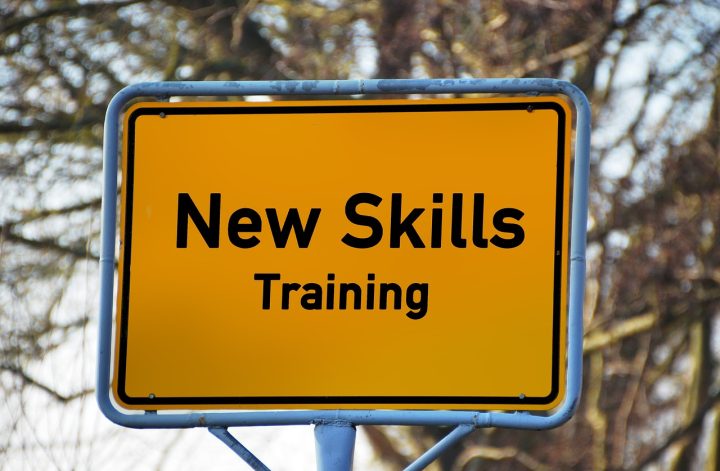In today’s fast-paced professional world, standing out is no longer optional—it’s essential. Whether you’re a seasoned project manager or an ambitious professional climbing the ladder, personal branding can be the game-changer you need. It’s what sets you apart, creates opportunities, and builds a reputation that speaks for itself.
But how do you craft a personal brand that actually works? One that feels authentic, attracts the right people, and opens doors to career growth? Let’s dive in
What is Personal Branding, and Why Should You Care?
Think of personal branding as your professional reputation—intentionally shaped and strategically presented. It’s not just about having a polished LinkedIn profile or a catchy tagline; it’s about creating a unique professional identity that reflects:
- Your expertise – What you bring to the table.
- Your values – What drives you professionally.
- Your personality – What makes you memorable.
Why Personal Branding Matters for Professionals and Project Managers
A strong personal brand isn’t just a vanity project—it’s a powerful career tool. Here’s what it can do for you:
- Increases career opportunities – Whether you’re job hunting or aiming for a promotion, a solid personal brand makes you the obvious choice.
- Builds credibility and trust – A well-defined brand helps people recognize your expertise and take you seriously.
- Expands your network – Thought leadership and strategic networking can connect you to industry influencers, decision-makers, and mentors.
- Gives you control over your narrative – Instead of letting your work speak for itself (and hoping for the best), you take charge of how people perceive you.
If you’re not actively shaping your brand, others will do it for you—and that’s not a risk you want to take.
Step 1: Self-Discovery – Define What Makes You Unique
Before you start building your brand, you need clarity on who you are professionally and what you stand for.
1. Identify Your Strengths and Core Skills
To get started, ask yourself:
- What are the top 3 skills I’m known for?
- What professional challenges do I love solving?
- What feedback do I consistently receive from colleagues and managers?
If you’re not sure, take a skills assessment or ask trusted colleagues for their perspective. The goal is to pinpoint what makes you valuable and irreplaceable.
2. Craft Your Unique Value Proposition (UVP)
Your UVP is a concise statement that explains:
- Who you are
- What you do
- What makes you different
For example:
“I’m a project manager specializing in IT transformations, known for delivering high-impact solutions ahead of deadlines and under budget.”
The clearer and more compelling your UVP, the stronger your personal brand will be.
Step 2: Build and Optimize Your Online Presence
Now that you know what makes you unique, it’s time to make sure the world knows it too.
1. Upgrade Your LinkedIn Profile
Your LinkedIn profile is your digital business card. Make it work for you:
- Use a professional headshot 📸
- Write a compelling headline (don’t just list your job title—add what you specialize in)
- Craft an engaging summary that highlights your expertise, achievements, and what drives you
- Share posts, comment on industry discussions, and engage with others
2. Create a Personal Website or Portfolio
Want to stand out? A personal website can showcase your expertise far better than a simple resume. Use it to:
- Publish blog posts
- Showcase case studies of past projects
- Collect testimonials from clients and colleagues
A simple, well-organized website acts as a 24/7 marketing tool for your career.
3. Stay Active on Industry-Specific Platforms
Besides LinkedIn, consider engaging on platforms like:
- Twitter (for quick insights and networking)
- Medium or Substack (for long-form content and thought leadership)
- Industry forums and Slack communities
The key? Be consistent. You don’t need to post every day, but regular activity keeps you visible and relevant.
Step 3: Expand Your Network and Visibility
1. Join Professional Associations
Being part of industry groups not only boosts credibility but also gives you insider access to valuable opportunities. Look for:
- Local and international project management groups
- IT and tech associations
- Niche forums related to your expertise
2. Speak at Events and Webinars
Public speaking is a power move when it comes to personal branding. Start small by:
- Presenting at internal company meetings
- Hosting a workshop for your team
- Speaking at virtual webinars or conferences
The more visible you are, the more authority you build.
3. Collaborate and Partner with Others
Engagement isn’t just about posting—it’s about conversations.
- Comment on others’ posts
- Interview industry leaders for your blog
- Co-host a webinar with a peer
These small actions can skyrocket your exposure without needing to create endless content on your own.
Step 4: Create Valuable Content That Showcases Your Expertise
Want to build a strong personal brand? Teach what you know.
1. Start Blogging or Writing Articles
Even if you’re not a writer, sharing your insights helps position you as an expert. Simple content ideas:
- Lessons learned from past projects
- Industry trends and insights
- Common mistakes professionals make (and how to fix them)
You don’t have to publish every week—quality over quantity always wins.
2. Experiment with Video or Podcasting
Not a fan of writing? No problem. Try:
- Sharing quick insights via LinkedIn videos
- Starting a YouTube channel or podcast
- Hosting Q&A sessions on Twitter Spaces
Different formats help you reach different audiences—choose the one that feels right for you.
Step 5: Keep Refining and Stay Authentic
1. Get Feedback and Adjust
Ask yourself regularly:
- Is my personal brand attracting the right opportunities?
- Am I staying consistent with my messaging?
- What do people associate me with professionally?
If something isn’t working, tweak it. Your brand should evolve with your career.
2. Stay True to Yourself
At the end of the day, personal branding isn’t about pretending to be someone you’re not. It’s about amplifying what’s already great about you.
- Don’t try to copy others—lean into your strengths.
- Stay honest and transparent in how you present yourself.
- Focus on long-term value, not short-term trends.
Authenticity is what makes a brand truly unforgettable.
Final Thoughts: Take Control of Your Career Today
Building a personal brand isn’t a one-time task—it’s an ongoing investment in your future. The sooner you start, the faster you’ll see results.
🚀 Action Steps to Take Today:
✅ Define your unique value proposition
✅ Optimize your LinkedIn profile
✅ Start sharing valuable insights (blogging, videos, or social media posts)
✅ Network and collaborate with industry professionals
Your personal brand is your career’s biggest asset—start shaping it today!
If you like this, you will also love How to Be a Good Listener: Tips and Tricks



